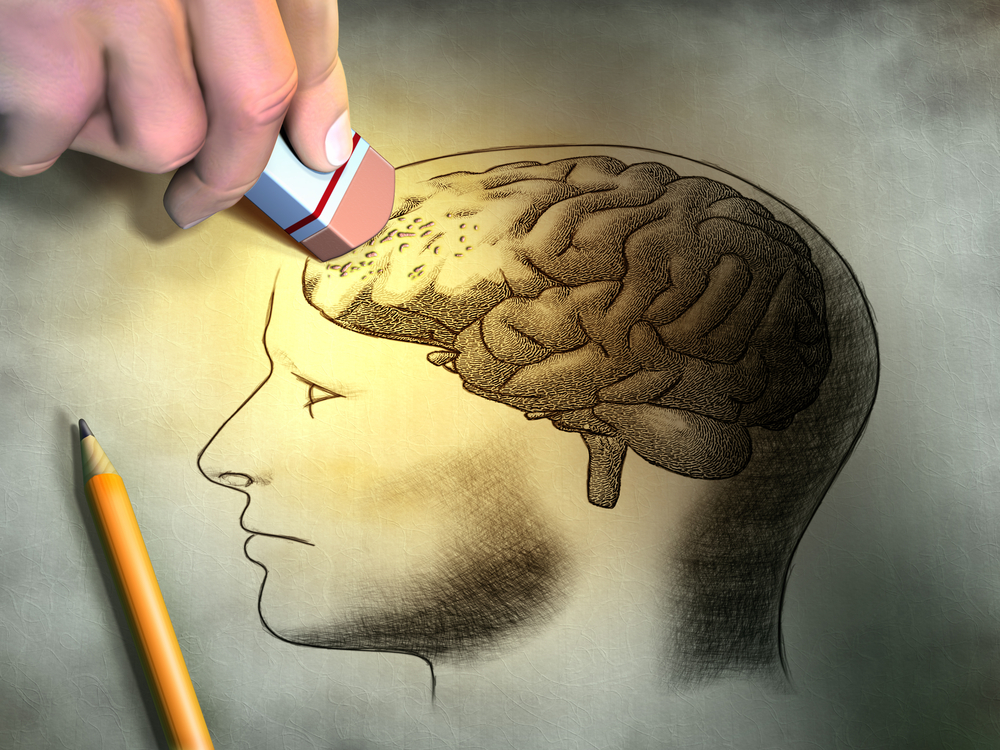Dementia is an increasingly common condition. It is a syndrome due to a disease of the brain, usually of a chronic or progressive nature, characterized by disturbance of multiple cortical functions, including memory, thinking, learning capacity, calculation, comprehension, language, orientation, and judgement. Cognitive function is commonly accompanied and occasionally preceded by emotional control, motivation, and social behaviour deterioration. The problem occurs in many conditions primarily or secondarily affecting brain function. You can buy the best Alzheimer’s treatment online to improve cognitive function.
Stages of Alzheimer’s disease
Alzheimer’s disease is the most common type of dementia. Other major contributors include vascular dementia and other diseases contributing to frontotemporal dementia. The effect of dementia is different in each person, depending on the impact of the disease and the person’s pre-morbid personality. The problems associated with dementia are classified under three stages:
- Early stage- First year or two
- Middle stage-second to fourth or fifth years
- A late stage-Fifth year and after
These time durations are given as an approximate guideline only sometimes people; people may deteriorate more quickly, sometimes slowly. Here, it is important to note that all persons with dementia will show all the symptoms.
Symptoms experienced by people with dementia syndrome
- Early stage:
An early stage of dementia is often ignored. Loved ones and friends see it as old age, as a normal part of the ageing process. This is because the onset of the disease is gradual. It is quite difficult to predict when it begins exactly.
- Become forgetful, especially regarding things that recently happened.
- May have problems with communicating, such as difficulty in finding words.
- Become lost in familiar places.
- Difficulty making decisions and personal finances
- Difficulty carrying simple household tasks
- Loss track of the time, including time of day, month, year, and season
- Mood and behaviour:
- May display mood changes, including anxiety or depression
- May become physically less active and motivated and lose interest in activities and hobbies
- May react unusually angrily or aggressively on occasion
- Middle age:
As the disease progresses, limitations become more restricting
- Become more forgetful, especially of recent events and people’s names
- Problem comprehending time, date, place, and events; may be lost at home as well
- Problems with communication have increased
- Need help with personal care (toileting, dressing and washing)
- Not able to prepare food, clean or cook
- Not able to live alone safely without support
- Behavioural changes may include repeated questioning, clinging, calling out, wandering, hallucinations, disturbed sleeping
- Many patients show inappropriate behaviour in the home or the community
- Later age:
The last stage is characterized by nearly total dependence and inactivity. In this stage, memory disturbances are very serious.
- People are unaware of the time and place
- Problem understanding what is happening around them
- Not able to eat without support, may even have difficulty swallowing
- May have bowel and bladder incontinence
- May be not able to walk or be confined to a wheelchair or bed
- Increased need for assistance with self-care (toileting and bathing)
- Behaviour changes may worsen and include aggression towards the carer or nonverbal agitation
Medicinal treatment may improve symptoms and prevents the worsening of the condition. One can get the best Alzheimer’s treatment online for themselves or their loved one.
What are the different types of dementia?
Various disorders and factors give rise to the development of dementia. Neurodegenerative disorders cause a progressive and irreversible loss of neurons and brain functioning. Currently, there is no cure for this condition.
The ten common forms of dementia are:
- Alzheimer’s disease is a common form of dementia diagnosis in older adults. It occurs due to changes in the brain, including abnormal buildups of proteins in or around the brain.
- Frontotemporal dementia is a rare type of dementia that affects people younger than 60. It causes problems with language and behaviour. Frontotemporal dementia affects the front sides of the brain ( the frontal and temporal lobes)
- Dementia due to Parkinson’s disease- Many people with advanced Parkinson’s disease will display dementia. Early signs of this type cause problems with reasoning and judgement.
- Dementia with Lewy bodies is a type of progressive dementia associated with the buildup of a protein called alpha-synuclein that damages brain cells.
- Mixed dementia – Some people develop more than one type of dementia. The most common combination is Alzheimer’s disease. The most commonly reported combination is vascular dementia and Alzheimer’s disease. People with mixed dementia often experience symptoms from each type of dementia.
- Vascular dementia occurs due to reduced blood supply to the brain, causing cells to die. There are two different types of vascular dementia, namely:
- Stroke-related dementia – is caused by a large stroke or a series of small strokes
- Subcortical vascular dementia – is caused by inadequate blood supply to the deep parts of the brain over a long period.
7. Huntington’s disease is a genetic disorder that causes symptoms of dementia. One exists as a juvenile form and causes symptoms in childhood or adolescents. The other is the adult form typically causes symptoms in individuals in their 30s or 40s. Symptoms include impaired movements such as trouble walking, difficulty swallowing, and jerking.
8. Creutzfeldt-Jakob disease (CJD) is one of the rarest forms of dementia. It progresses very quickly, and people often die within a year if diagnosed with this rarest form of dementia.
9. Normal pressure hydrocephalus is a condition that causes an individual to build up extra fluid in the brain’s ventricles. The ventricles are fluid-filled spaces made to cushion an individual’s brain and spinal cord. They depend on just the right amount of fluid to function properly. Excessive buildup of fluid puts extra pressure on the brain. This can cause damage that contributes to dementia symptoms.
10. Wernicke – Korsakoff syndrome is a brain disease caused Due to vitamin B1 deficiency that causes bleeding in the lower part of the brain. It can cause physical symptoms like loss of muscle coordination and double vision, and a loss of muscle coordination. At some point, the physical symptoms of untreated Wernicke’s disease tend to decrease, and the signs of Korsakoff syndrome begin to appear. Korsakoff syndrome is a memory disorder caused by advanced Wernicke’s disease. People with Korsakoff syndrome may have problems learning new skills, processing information, and remembering things. It’s technically not a form of dementia. However, symptoms are similar to dementia, often classified as dementia.
Takeaway
Dementia is devastating not only for those with it but also for the family members ad caregivers. With an increasing number of people affected by dementia, almost everyone knows someone with dementia or whose life has been touched by it. If you or your loved ones are experiencing problems with difficulty performing even familiar tasks or mood or personality changes, speak to your doctor. Your doctor may prescribe medications to reduce symptoms. You can buy Alzheimer’s medicine online at the best price.




